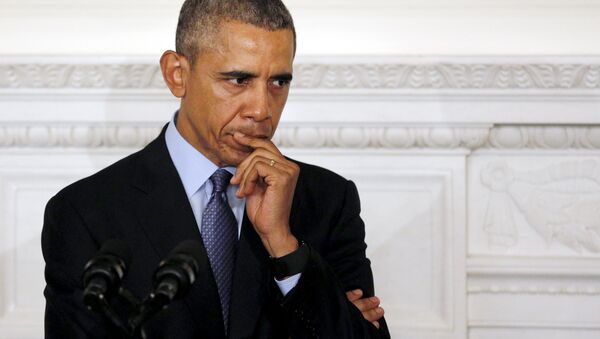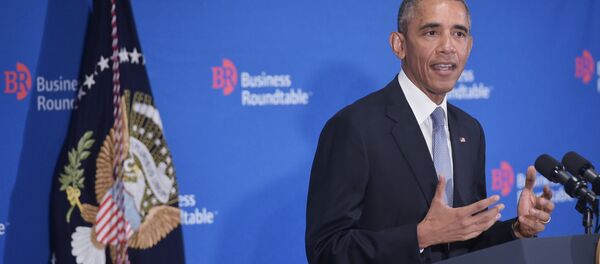"I’m going to be working hard as I can to make sure I have a Democratic successor… but I’m going to be working just as hard to make sure we have a Democratic Senate," Obama said at a reception for the Democratic Senatorial Campaign Committee, as quoted by The Dallas Morning News.
The 54-year-old President is due to leave the White House when the president-elect Americans choose in November is sworn into office next January. Two candidates are currently seeking the Democratic Party nomination – Vermont Senator Bernie Sanders and former US Secretary of State Hillary Clinton.
In his speech, Obama lashed out at the Republican camp for using inflammatory rhetoric during their presidential campaigns. The president warned candidates that they should not resort to insults and "schoolyard taunts" in order not to generate hatred among Americans.
This comes a day after billionaire Donald Trump, who leads the pack of contenders running for the Republican nomination, had to call off a rally in Chicago on Friday after a brawl erupted between his supporters and opponents.
Clinton and Sanders have been running a tight race. While both hope to secure pledged delegates to the Democratic Party Convention by winning state primary elections, so called 'super-delegates', party officials who can support any candidate, have come out overwhelmingly in favor of Hillary Clinton, who is seen as a more moderate, pro-establishment contender. The candidate with the largest overall number of delegates will secure the party's nomination.
Sanders, a self-proclaimed 'democratic socialist' who has vocally advocated higher taxes, a federal $15/hour minimum wage, the nationalization of medical insurance and the provision of free higher education, has out-performed Hillary Clinton in traditionally Democratic states such as Minnesota, Michigan and his native Vermont while losing to the former First Lady in southern states such as Virginia, Texas and Louisiana. Clinton is seen as a more moderate candidate, but many question her role promoting US involvement in the war in Libya and her failure to respond promptly or adequately when Islamists attacked the US embassy compound in Benghazi, Libya in 2012.
Crucial in deciding the party's nominee will be the role played by Florida and Ohio on March 15, when those states' Democrats will vote to select their party's presidential candidate. Both states allot candidates pledged delegates on a winner-take-all basis rather than on a proportional basis, meaning that, for example, if Clinton wins just over 50 percent of the vote in Florida, she will take all of the state's 246 delegates rather than only 124. Because the candidates have been running neck-and-neck, securing all of the pledged delegates may allow Clinton to strengthen her lead over Sanders or give him the momentum to overtake her.



